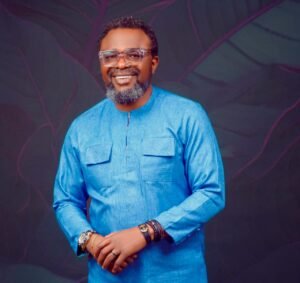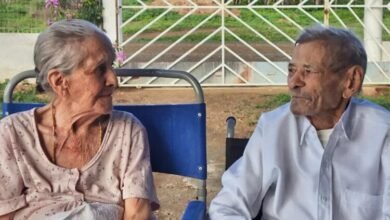A Turning Point: How One Law School Experience Changed My Worldview

As I reflect on my journey through life, particularly at 55 years old, I realize that there are key principles that have shaped me, principles learned through personal experiences, my faith, and the wisdom passed down through generations. These lessons have informed everything I do, especially in my journey as a parent. I purposefully model and teach my son these same principles.
Life, as I now understand, is a journey of growth, learning, and constant self-discovery. The older I get, the more reflective I become, particularly because the work I do requires me to lead others. To do so effectively, I must first lead myself.
In my early years, I was deeply influenced by my uncle, Chief Gani Fawehinmi, a man of means but very modest, who played a pivotal role in my education. He sent me to university and later supported my law school education. I remember, especially when I was preparing for law school, how I had a list of things I thought I needed. I was eager to have a full wardrobe, especially for casual wear, thinking that these items would help me fit in. But when I showed the list to my uncle, he approved almost everything I needed for class but canceled nearly all my casual wear plans. He told me, “You’re going to school to focus on your studies, not on what you wear after class.” It was a teachable moment. His message was clear: “Focus on your needs, not your wants.” It wasn’t about the clothes; it was about prioritizing my purpose.
This lesson became clear: life is about focusing on the essentials and not getting distracted by superficial things. As I moved forward, I carried that lesson with me. The story is never about what we lack or what others have; it’s about what we choose to prioritize.
Another profound principle that has guided me since my youth is my dispassion toward people’s promises. I don’t take human promises to heart. I remember my father promising to send us to higher institutions, but due to financial hardship and poor decisions, he couldn’t fulfill that promise. He could only send us as far as secondary school. As young as I was, I didn’t hold any grudges against him. Instead, I looked for alternatives without bitterness. I approached my mother to speak to his elder brother, Chief Gani Fawehinmi, and he kindly took on our education. This disposition has helped me see my options early and take them rather than mourning what is lost. This mindset applies to business too. If you promise me a deal and cancel it, I don’t feel disappointed. I simply move on, knowing that my destiny isn’t bound by other people’s actions or failures.
It’s not that I’m cynical; it’s about understanding that everything I receive is a privilege from God. It’s not something I should take for granted or feel entitled to. So, when my uncle canceled my casual wear list, I simply moved on, embracing the lesson.
Fast forward to law school, where I was surrounded by peers who seemed to have everything, powerful wardrobes, influence, connections. And I was the one who showed up in basic clothing. One day, overwhelmed by the apparent disparity, I felt I was missing out on the fashion parade in law school. In that moment of self-pity, a question popped into my head: “Is this the end of my story? Is this really what defines me?” And in that moment, a voice spoke to me: “This is just a phase. This is not the end of your story. It’s just a chapter.” That lesson has shaped my life ever since.
This attitude of resilience is rooted in faith. “Better is the end of a thing than the beginning” (Ecclesiastes 7:8). Life’s most challenging moments are often the building blocks of our most defining experiences. It’s not about where we are right now, but where we’re headed. “I know the thoughts I have toward you, thoughts of good and not of evil, to give you a future and a hope” (Jeremiah 29:11). These words have always reminded me that our current circumstances do not define who we are or where we’re going.
I’ve faced many challenges, and I’ve asked myself many times, “Is this the end of my story?” For 15 years, my wife and I prepared to have a child, and during that time, I kept asking, “What if it never happens?” Would that define me? The answer, as it always is, is no. Life is made up of phases, not definitions. This is not the end of your story.
As I recently celebrated my 55th birthday and reflected on five decades of life, I can confidently say that the journey is never over. There is always another step, another chapter, another opportunity. Life is in phases, and every phase has a lesson to teach. “As long as there is breath, there is still purpose.” That’s something I’ve carried with me, and it continues to guide me in everything I do, especially as a parent. I remember reading Joyce Meyer’s book, Enjoying Life on Your Way to Where You’re Going, which reminded me that life is not just about the destination but about enjoying the process.
For those who are struggling, feeling stuck, or wondering if they’ll ever reach their goals, I want to share this principle: It’s not the end of your story. You may not see it now, but if you trust in God’s timing and continue moving forward, you’ll find that better days are ahead. “A living dog is better than a dead lion” (Ecclesiastes 9:4). As long as you are breathing, you are still in the game, and there’s still more to accomplish.
Life has taught me that patience, resilience, and trust in God’s purpose are the key to overcoming challenges. And just like I was taught that what I wore in school was not the end of my story, I learned that nothing in this life is the final defining factor of who I am or what I can become. Life is full of opportunities, and we must learn to see beyond our current phase and focus on the possibilities ahead.
As I share these reflections, I hope they inspire you to continue your own journey with the same mindset. There’s always one more move to make.
What principles guide your life, and what experiences have shaped them? We would love to learn from you.
Wishing you an inspired week ahead with your family.





